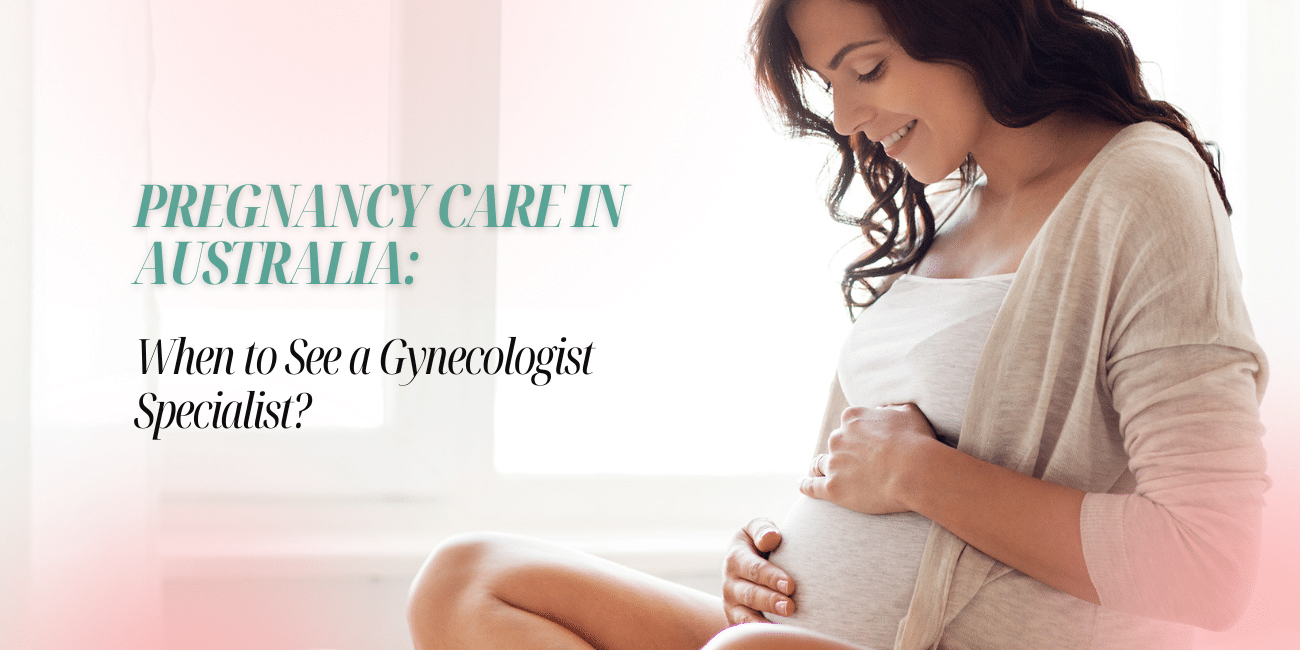Pregnancy is a miraculous journey, but it comes with its own set of challenges and uncertainties. Many expectant mothers in Australia often wonder when they should see a gynecologist specialist and what their role will be in ensuring the health and well-being of both mother and baby. While a general practitioner (GP) can manage the initial stages of pregnancy, a gynecologist specialist plays a crucial role in providing advanced care and guidance, especially when complications arise.
The Role of a Gynaecologist Specialist in Pregnancy Care
A gynaecologist specialist focuses on the female reproductive system, particularly during pregnancy. Their expertise becomes crucial when there are concerns about the health of the mother or baby, or when complications such as high-risk pregnancies arise. Gynaecologists have extensive knowledge of pregnancy, childbirth, and any associated conditions, and they can provide comprehensive care to ensure the best possible outcome for both the mother and the baby.
The most common reasons to seek the help of a gynaecologist specialist during pregnancy include:
- High-risk pregnancies: Conditions like diabetes, hypertension, or a history of miscarriage require careful monitoring and management, often by a specialist.
- Multiple pregnancies: Expecting twins, triplets, or more increases the likelihood of complications, and a gynaecologist is equipped to handle the complexities involved.
- Pre-existing conditions: If the mother has chronic conditions like endometriosis, fibroids, or hormonal disorders, a gynaecologist can provide necessary care.
- Unusual symptoms: Any signs of infection, unusual bleeding, or severe discomfort should prompt a visit to a gynaecologist for proper evaluation.
When Should You Consider Seeing a Gynaecologist?
While it’s common for women to see a gynaecologist after the first few weeks of pregnancy, it’s important to know when specialist care becomes crucial. Here are key scenarios to consider:
- Early complications: If you experience spotting or severe cramps early on, it’s essential to consult with a gynaecologist who can perform an ultrasound or other tests to check for any risks to the pregnancy.
- Advanced maternal age: Women over 35 are considered at higher risk for complications, so it’s advisable to visit a specialist who can help monitor the pregnancy closely.
- Pre-existing health issues: Women with diabetes, hypertension, or a history of heart disease should see a gynaecologist regularly to manage these conditions during pregnancy.
Facts You Didn’t Know About Gynaecological Care During Pregnancy
Here are some fascinating facts about pregnancy care that you may not be aware of:
- Increased Risk in Twin Pregnancies: Studies show that twin pregnancies carry a significantly higher risk of premature birth and other complications, making regular visits to a gynaecologist essential.
- Consultation with a Gynaecologist Can Lower C-section Rates: A survey of Australian hospitals found that pregnant women who received care from a gynaecologist specialist throughout their pregnancy had lower rates of unnecessary cesarean sections. This highlights the importance of expert care for mothers aiming for natural childbirth.
- Early Detection of Conditions: According to a report from the Royal Australian and New Zealand College of Obstetricians and Gynaecologists (RANZCOG), early visits to a gynaecologist can help detect issues like gestational diabetes or preeclampsia before they become life-threatening for both mother and child.
Finding the Best Gynaecologist in St. Albans
For women in St. Albans and surrounding areas, finding the best gynaecologist in St. Albans is essential to ensure a healthy and safe pregnancy. The best specialists are not only highly qualified but also empathetic and able to make patients feel at ease during their appointments. When choosing a gynaecologist, consider:
- Reputation: Look for reviews or ask friends and family for recommendations. The best gynaecologist in St. Albans will have positive feedback from past patients.
- Specialization: Ensure the gynaecologist has experience with high-risk pregnancies or any specific concerns you may have.
- Comfort and Communication: A good relationship with your specialist is crucial. Choose a gynaecologist who listens to your concerns and explains medical conditions in a clear, understandable way.
How to Find a Gynaecologist Near Me
Finding a gynaecologist near me is as easy as searching online or asking for recommendations from your GP. However, it’s crucial to ensure that the specialist you choose has the relevant expertise for your needs. Many women start by seeking a referral from their GP, who can recommend trusted professionals in the area. Online directories and reviews also help identify specialists nearby who offer the services you require.
You can also check with local health clinics and hospitals that specialize in maternity care. Whether you’re looking for prenatal care or a more complex medical evaluation, the right gynaecologist can guide you through the entire pregnancy journey.
Conclusion
In Australia, pregnancy care involves a partnership between the mother, her GP, and the gynaecologist specialist. If complications arise, seeking the expertise of a gynaecologist specialist can make a world of difference in the health outcomes of both the mother and baby. Regular visits to a gynaecologist ensure that your pregnancy is progressing smoothly and that potential issues are caught early. For those in St. Albans, finding the best gynaecologist in St. Albans is an essential step in securing excellent care.
So, whether you’re expecting your first child or managing a high-risk pregnancy, don’t hesitate to reach out to a gynaecologist specialist when the need arises. The earlier you receive specialized care, the healthier your pregnancy journey will be.

